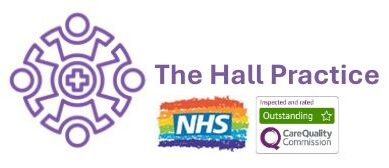Non-urgent advice: What is a Primary Care Network?
Take a look at this short animation from NHS England which explains how they work.
The Chalfont’s Primary Care Network
Your GP practice is a part of the Chalfont’s Primary Care Network and collaborates with the following practices:
- The Allan Practice
- The Hall Practice
- The Misbourne Practice
The PCN looks after more than 31,000 of Chalfont residents across these 3 GP practices.
The PCN Clinical Director is Ran Hettiaratchi, GP Partner at The Misbourne Practice.
What benefits do Primary Care Networks have for patients?
Greater range of services: Patients have access to more diverse care services closer to home, with improved accessibility.
Integrated care: PCNs collaborate with a wider array of health and community services.
Support for complex conditions: Patients receive comprehensive support for complex health issues, and have access to the necessary health and care services.
Patient involvement: Patients have a greater role in decision-making regarding their own health and the care they receive. GP practices will work closely with patient participation groups and the local community to maintain the benefits of Primary Care Networks. It’s essential to listen to patients, as general practices exist to support their health and care needs.
Additional roles in PCNs
In the Chalfont’s Primary Care Network, there is a wide range of roles to support the residents and patients with specialised skills directly into practices along with general clinical knowledge. These can add capacity to practice GP and nursing teams.
Clinical pharmacists
Clinical pharmacists work in primary care as part of a multidisciplinary team in a patient facing role to clinically assess and treat patients using expert knowledge of medicines for specific disease areas. They work with and alongside the general practice team, taking responsibility for patients with chronic diseases and undertaking clinical medication reviews to proactively manage people with complex polypharmacy, especially for the elderly, people in care homes and those with multiple comorbidities.
PCN Paramedic
A paramedic in a Primary Care Network can provide a rapid response to deteriorating patients and patients with long-term conditions, minor injuries, and minor illnesses. They can also support patients who require wound care, have fallen, have musculoskeletal problems, and have urinary tract or respiratory infections. Paramedics can supply a range of medicines through patient group directions. Paramedics can support PCNs in responding to on-the-day demand by offering telephone triage or undertaking home visiting. They can also support PCNs to improve access to care by managing minor ailments and seeing patients in care homes.
Physician Assistants
Physician Assistants (PAs) are healthcare professionals with a generalist medical education, who work alongside doctors, providing medical care as an integral part of the multidisciplinary team. Physician Assistants are dependent practitioners who work under the supervision of a fully trained and experienced doctor. They bring new talent and add to the skill mix within teams, providing a stable, generalist section of the workforce which can help ease the workforce pressures that the NHS currently faces.
Social Prescribing Link Workers
Social prescribing link workers connect people to community-based support, including activities and services that meet practical, social and emotional needs, that affect their health and wellbeing. This includes connecting people to statutory services, for example housing, financial and welfare advice.
Care Coordinators
Care Coordinators play an important role within a PCN to proactively identify and work with people, including the frail/elderly and those with long-term conditions, to provide coordination and navigation of care, and support across health and care services.
Care Coordinators could potentially provide extra time, capacity and expertise to support patients in preparing for or in following-up clinical conversations they have with primary care professionals. They will work closely with the GPs, and other primary care professionals within the PCN, to identify and manage a caseload of identified patients, making sure that appropriate support is made available to them and their carers, and ensuring that their changing needs are addressed
